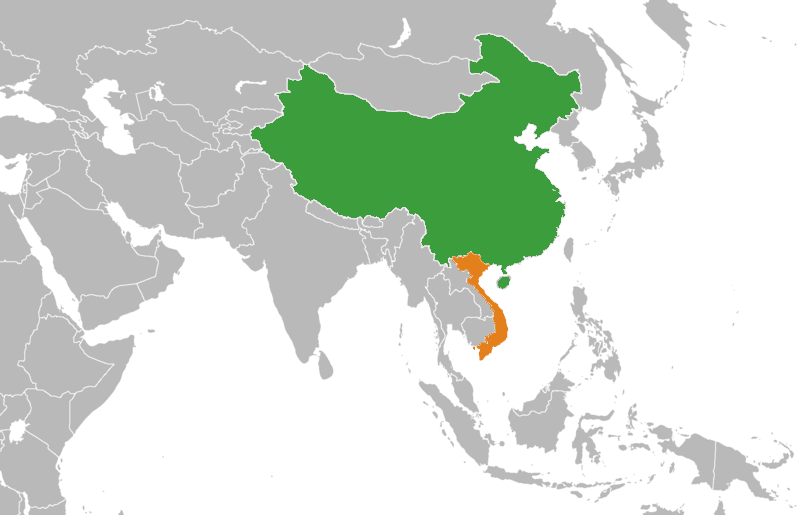Headline
Vietnam accuses China of sinking fishing boat
HANOI, Vietnam — Vietnam and China traded accusations Tuesday over who was the aggressor in a clash that led to the sinking of a Vietnamese fishing boat in the South China Sea, sharpening tensions already dangerously high after China moved an oil rig into the disputed waters.
Hanoi accused a Chinese vessel of ramming the wooden Vietnamese boat Monday then fleeing the scene. Beijing said the Vietnamese boat was trying to get close to the oil rig, rammed into one of its vessels, and then sank.
The crew was rescued.
The clash occurred around 30 kilometers (18 miles) south-southwest of the large oil rig that China deployed on May 1 in waters both nations claim.
The rig deployment infuriated Hanoi and set off violent anti-China protests that further soured ties between the neighboring communist countries with close economic relations. Vietnam sent patrol ships to confront the rig, and China has deployed scores of vessels to protect it. The two sides have been involved in a tense standoff, occasionally colliding with each other.
China and Vietnam have long sparred over who owns what in the oil- and gas-rich waters. Incidents between fishing crews are quite common, but Monday’s incident was the first time a Vietnamese boat had been sunk, said Tran Van Linh, president of the Fisheries Association in the central port city of Danang.
“I call this an act of attempted murder because the Chinese sank a Vietnamese fishing boat and then ran away,” Linh said. “We vehemently protest this perverse, brutal and inhumane action by Chinese side.”
Linh said about 40 Chinese steel vessels surrounded a group of smaller, wooden Vietnamese fishing ships on Monday afternoon. He said one then rammed into the Vietnamese ship, tossing 10 fishermen into the water and sinking the boat. The fishermen were picked by the other Vietnamese boats and there were no injuries.
In Beijing, the government said that a Vietnamese fishing boat had forced its way into the area around the oil rig and rammed into a Chinese fishing boat. “I think the fact that this incident happened at all shows that Vietnam’s illegitimate and illegal harassment and sabotage against China’s regular operations are futile and will only hurt their own interests,” said Foreign Ministry spokesman Qin Gang.
Since May 1, Vietnam has accused China of ramming into or firing water cannons at Vietnamese vessels trying to get close to the rig, damaging several boats and injuring fisheries surveillance officers. They have shown video footage of some of the incidents. China accuses Vietnam of doing the same.
China claims nearly all of the South China Sea as its own, bringing it into conflict with far smaller neighbors like Vietnam and the Philippines. In recent years it has been more assertive in pressing its claims in the waters and resisting attempts to negotiate.
Philippine President Benigno Aquino III said Tuesday his country was watching developments in the Vietnam-China standoff. “We’re trying to learn the right lessons and our armed forces and coast guard and other concerned agencies are looking at the possible scenarios and what should be our appropriate response,” he said.
He spoke from a western Philippine naval base he said had been equipped with surveillance and better communications to better guard against territorial intrusions.
The United States, which shares the concerns of the smaller claimant states about China’s rising military might, called China’s deployment of the rig “provocative.” Vietnam is trying to rally regional and international support against Beijing, but its options are limited because China is the country’s largest trading partner.
In Washington, State Department spokeswoman Jen Psaki told reporters Tuesday the U.S. doesn’t have independent information about the sinking of the Vietnamese ship but remains concerned “about dangerous conduct and intimidation by vessels operating in this area, by the Chinese.” She called for all parties to exercise restraint.
Associated Press writers Louise Watt in Beijing, Jim Gomez in Manila and Matthew Pennington in Washington contributed to this report.
























